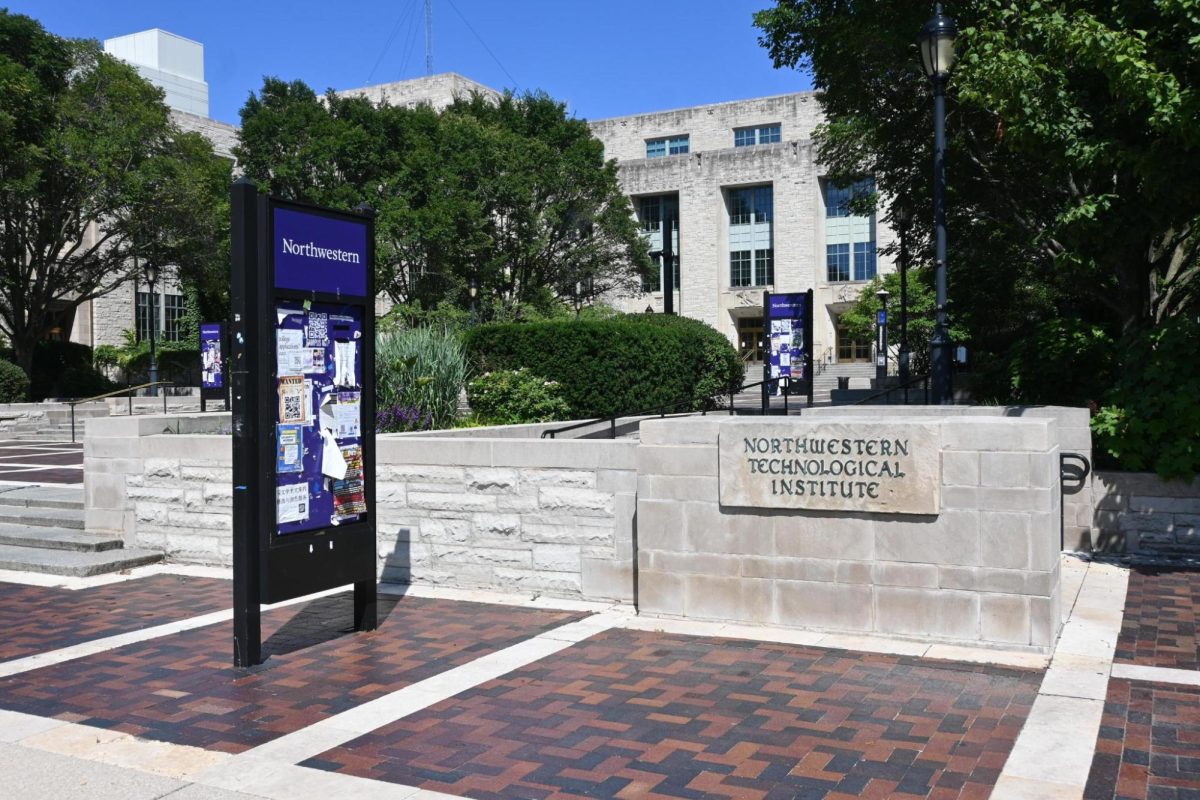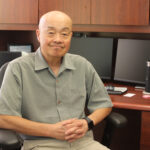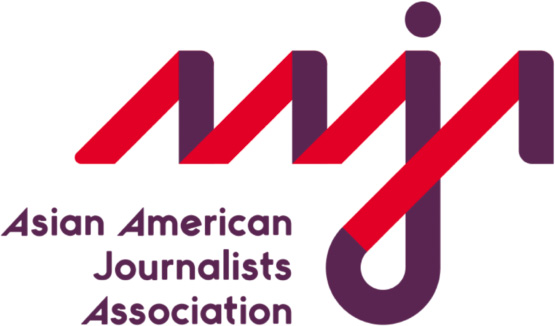Education
 As officials weigh reviving the China Initiative, researchers warn that scrutiny and suspicion are driving talent away from America's scientific institutions.
As officials weigh reviving the China Initiative, researchers warn that scrutiny and suspicion are driving talent away from America's scientific institutions.
Published August 26, 2025
 William Tong
William Tong

Researchers with Chinese affiliations at Northwestern University have lingering fears about federal investigations after the Justice Department's China Initiative. (Photo by William Tong.)
Gang Chen was arrested at his home on January 14, 2021, in front of his wife and daughter. Federal prosecutors charged Chen, a Massachusetts Institute of Technology professor, for failing to disclose connections with Chinese research institutions on grant applications for research funding, according to legal filings.
After what Chen called a “very difficult” year, prosecutors dropped the case in its entirety. The government was unable to provide sufficient evidence, according to legal filings.
“Emotionally, it has taken a big toll on me and my family — that kind of shock, right — to my wife, to my daughter and my son,” he told The Daily Northwestern (also known as The Daily).
Chen’s case was one of the most high-profile cases in the China Initiative — a Department of Justice (DOJ) program that focused “attention on the multi-faceted threat from the government of China,” then-Assistant Attorney General Matthew Olsen said in February 2022. The now-defunct initiative purportedly homed in on Chinese researchers engaged in espionage or trade theft, as well as those who allegedly failed to disclose their connections to China, such as Chen.
However, several researchers said the investigations were too broad and unfairly targeted people based on their background or national origin. Many academics feared they could be subject to investigations, funding revocation, research stoppage or federal indictment.
The China Initiative officially ended in 2022, though Congress has periodically eyed its revival. Meanwhile, similar investigations continue to drive fears among Chinese researchers and have lasting repercussions in academia, scholars said.
At Northwestern University, Chen said he knows of several researchers whom the federal government has investigated. One prominent medical school professor, Jane Wu, lost her lab after a National Institutes of Health probe. The investigations created a “chilling effect” in academia, said one Northwestern University professor who spoke on the condition of anonymity, for fear of also being investigated by the government.
Despite the show of support from researchers at MIT and nationwide, Chen’s work took an irreversible hit by the time his charges were dropped, he said. He pivoted from his previous research and stopped applying for federal funding.
“I have decided that’s not worth the risk,” Chen said.
Friends to foes
The research relationship between the U.S. and China has gradually shifted over the course of the last four decades, said Yangyang Cheng, a research scholar at Yale Law School’s Paul Tsai China Center.
When China reopened trade with the U.S. after the 1970s, Western companies weren’t nearly as concerned about protecting their intellectual property, Cheng said.
“The idea was that [Western businesses] can trade some of their technology for customers and labor market access,” Cheng said.
As China caught up to the U.S. in its research and technological prowess, more concerns emerged over protecting American economic interests in competition with China, especially intellectual property, Cheng said. In 2015, for instance, then-President Barack Obama called alleged China-based cyber theft of trade secrets “an act of aggression that has to stop,” according to CNN.
Those concerns began spreading to academia, said Chen, Cheng and the anonymous Northwestern University professor.
“Knowledge production is being seen as some kind of exclusive, proprietary process that needs to be guarded from foreign rivals,” Cheng said.
Still, many universities supported partnerships between researchers in the U.S. and China through 2020. More than 40% of China-based international research involved U.S.-based scientists between 2018 and 2020, according to researchers from the International Institute for Management Development and Leiden University in November 2024. Within the top 1% of cited research, U.S.-based international research involving Chinese scientists grew from about 11% from 2008-2010 to more than 33% from 2018 to 2020.
In 2018, shortly before the DOJ launched the China Initiative, the NIH announced efforts to work alongside other government agencies, NIH-funded institutions and U.S. university professional organizations, among others, to identify breaches of trust in U.S. biomedical research. That contributed to the investigation of researchers with Chinese affiliations. Between 2017 and October 30, 2024, about 90% of foreign interference cases for which the NIH contacted a researcher’s institution were related to China, according to an NIH report.
The National Science Foundation, a federal agency that supports non-medical STEM research, suspended 24 grants and terminated 16 others based on foreign affiliation investigations between 2019 and October 2023, according to Science. The vast majority were connected to Chinese entities.
Failure to disclose
The DOJ launched the China Initiative in November 2018. The program would identify and prosecute “Chinese trade theft cases,” including in “research labs and universities,” then-Attorney General Jeff Sessions said.
He framed the initiative as a way to hold China accountable for efforts to undermine American economic interests.
“China — like any advanced nation — must decide whether it wants to be a trusted partner on the world stage — or whether it wants to be known around the world as a dishonest regime running a corrupt economy founded on fraud, theft and strong-arm tactics,” Sessions said in November 2018.
The Justice Department prosecuted at least 150 defendants in 77 cases during the China Initiative’s lifespan, according to a December 2021 MIT Technology Review analysis of China Initiative cases. Those investigations focused on researchers who allegedly stole trade secrets or violated disclosure rules in grant funding.
But critics of the initiative argued it was ineffective. The MIT analysis from December 2021 found that about 75% of China Initiative cases up until that point did not result in convictions. By then, the department had shifted its focus from direct espionage cases to “research integrity” cases — those like Chen’s where disclosure rules may have been violated.
Allison Lerner, former NSF inspector general, said failure to disclose wasn’t just a “paperwork error” during an October 2021 House committee hearing.
Lerner said especially when contracts with foreign research programs are involved, non-disclosures could affect how universities and federal agencies allocate money.
“That undermines the competitive process, and that puts funds at risk,” she said.
But critics have argued that disclosure violations allowed the government to investigate and potentially convict researchers without proof of explicit espionage.
“They were turning [some non-disclosures] into: ‘Well, you didn’t put that on the form, so now we’re going to charge you with a felony because obviously you’re collaborating with the Chinese,’” said Robert Fisher, an attorney who defended Chen and other researchers prosecuted under the China Initiative. “That became a slippery slope.”
By 2022, more than 1,000 academics had signed or endorsed an open letter from Stanford University faculty asking then-Attorney General Merrick Garland to end the program. In a separate letter, more than 90 members of Congress also asked Garland to investigate the “repeated, wrongful targeting of individuals of Asian descent for alleged espionage.”
The Justice Department closed the program in February 2022. The China Initiative had created “a narrative of intolerance and bias,” Olsen, the former assistant attorney general, said.
But investigations into researchers with Chinese affiliations both predate and are much “broader in scope” than the China Initiative itself, Cheng said. That included investigations from agencies like the NIH and NSF.
“We’re trying to send a message that this is not either-or, it’s both-and — We can have security and integrity and, at the same time, have proper collaboration,” said Dr. Michael Lauer, who was deputy director for extramural research at the NIH while the China Initiative was active and ended his term in early 2025.
To stay or go?
Jiaxing Huang, a materials science researcher, said he provided “comprehensive overdisclosure” in his grant applications and other documentation. Huang was a member of Northwestern’s faculty until 2021, when he moved to Westlake University, China’s first private research institution.
Huang said it wasn’t clear if his efforts actually made a difference.
“It made me feel better,” he said.
He hopes someday the U.S. and Chinese academic communities can return to more open collaboration, he added.
The anonymous Northwestern professor, a Chinese-born researcher, said they came to the U.S. decades ago to pursue the “American dream.”
“The U.S. is also very, very advanced in science and technology, so we believe we can learn the best stuff here and also help contribute to the development of science and technology here,” they said.
The professor expressed worry that a revival of the China Initiative, or similar federal investigative efforts, could lead to fewer Chinese international students wanting to learn and work in the U.S., contributing to a brain drain from America’s scientific institutions.
“Keep in mind, most of the people [who] come to study here stay here,” the professor said. “That’s another effect that maybe many of the government people — they don’t realize. They just say, ‘These are the spies.’”
Between 2005 and 2015, 87% of China-born new Ph.D.s in the U.S. intended to stay in the U.S., researchers from Princeton University, Harvard University and MIT wrote in a June 2023 paper. More than 40% of Chinese scientists surveyed by the University of Arizona and Committee of 100, a Chinese American nonprofit, said the China Initiative and related programs affected their plans to stay in the U.S.
The number of Chinese researchers leaving America has also steadily climbed between 2010 and 2020, the June 2023 study found. Nearly 1,400 left in 2020, and more than 1,600 left in 2021.
“This is a big loss of talent for the U.S.,” the professor said.
Not the path scholars chose
Cheng, the Yale researcher, said she thinks the end of the China Initiative likely weakened incentive to investigate Chinese researchers.
Still, federal authorities have continued efforts to pursue potential China-related foreign interference cases in research. For example, in March 2025, the Federal Bureau of Investigation and Department of Homeland Security carried out searches on two homes associated with a cybersecurity professor at Indiana University. The professor, Xiaofeng Wang, and his wife were abruptly fired from the university at the same time.
And in September 2024, the U.S. House passed a resolution to repackage investigations focusing on Chinese researchers as the “CCP Initiative.” CCP stands for the Chinese Communist Party.
Revitalizing the China Initiative was a part of Project 2025, the conservative playbook that was developed by the Heritage Foundation, and backed by Trump supporters, as a blueprint for a conservative administration.
And a report accompanying the Senate’s 2026 fiscal year commerce, justice and science appropriations bill calls for reestablishing the China Initiative, prompting backlash from thousands of researchers in a July letter to House Appropriations Committee Chair Tom Cole (R-Okla.).
The federal government has continued to more broadly scrutinize scholars with Chinese connections. In May 2025, the Trump administration considered rescinding visas for Chinese students in critical research fields.
While the China Initiative is over, its “chilling effect” still exists, said Chen, the MIT professor.
“‘It won’t take long until it’s my turn,’” Chen’s Chinese colleague told him, more than two years after charges were dropped, Chen said. “That’s the fear in people.”

Northwestern University
Education


Seattle 2025





Apply
Become a fellow or editor
Donate
Support our impact
Partner
Work with us as a brand

The Asian American Journalists Association (AAJA) is a membership nonprofit advancing diversity in newsrooms and ensuring fair and accurate coverage of communities of color. AAJA has more than 1,500 members across the United States and Asia.